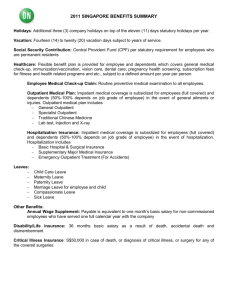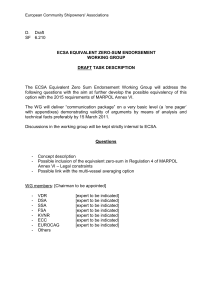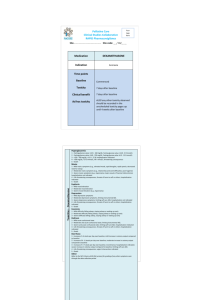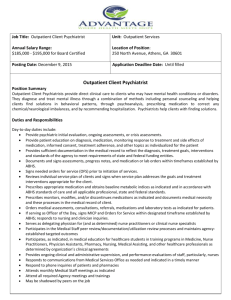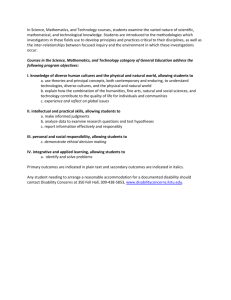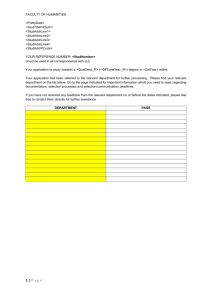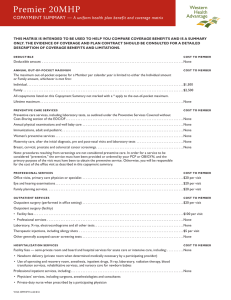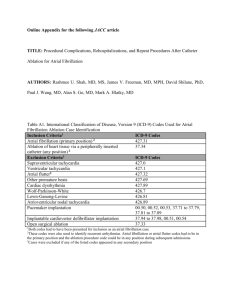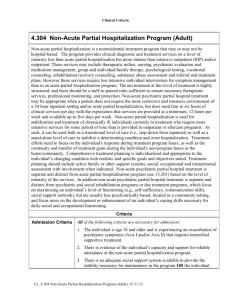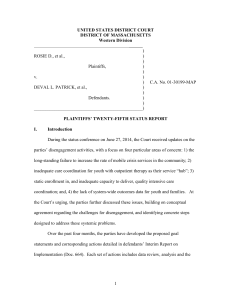Levels Of Care For Clients With Eating Disorders
advertisement
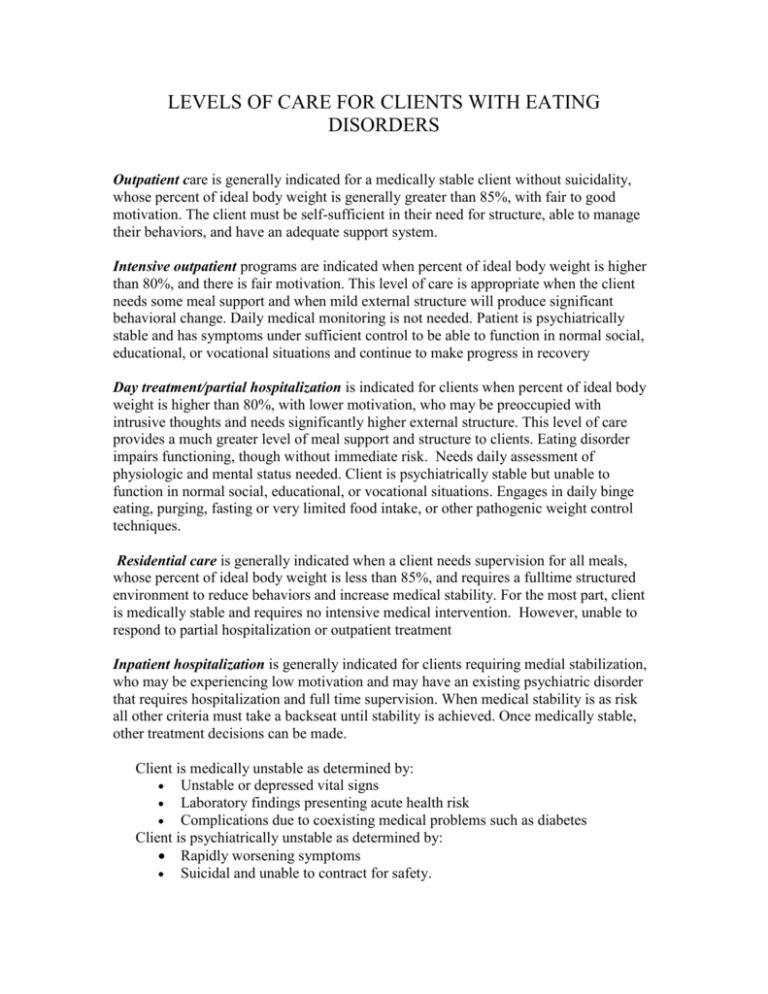
LEVELS OF CARE FOR CLIENTS WITH EATING DISORDERS Outpatient care is generally indicated for a medically stable client without suicidality, whose percent of ideal body weight is generally greater than 85%, with fair to good motivation. The client must be self-sufficient in their need for structure, able to manage their behaviors, and have an adequate support system. Intensive outpatient programs are indicated when percent of ideal body weight is higher than 80%, and there is fair motivation. This level of care is appropriate when the client needs some meal support and when mild external structure will produce significant behavioral change. Daily medical monitoring is not needed. Patient is psychiatrically stable and has symptoms under sufficient control to be able to function in normal social, educational, or vocational situations and continue to make progress in recovery Day treatment/partial hospitalization is indicated for clients when percent of ideal body weight is higher than 80%, with lower motivation, who may be preoccupied with intrusive thoughts and needs significantly higher external structure. This level of care provides a much greater level of meal support and structure to clients. Eating disorder impairs functioning, though without immediate risk. Needs daily assessment of physiologic and mental status needed. Client is psychiatrically stable but unable to function in normal social, educational, or vocational situations. Engages in daily binge eating, purging, fasting or very limited food intake, or other pathogenic weight control techniques. Residential care is generally indicated when a client needs supervision for all meals, whose percent of ideal body weight is less than 85%, and requires a fulltime structured environment to reduce behaviors and increase medical stability. For the most part, client is medically stable and requires no intensive medical intervention. However, unable to respond to partial hospitalization or outpatient treatment Inpatient hospitalization is generally indicated for clients requiring medial stabilization, who may be experiencing low motivation and may have an existing psychiatric disorder that requires hospitalization and full time supervision. When medical stability is as risk all other criteria must take a backseat until stability is achieved. Once medically stable, other treatment decisions can be made. Client is medically unstable as determined by: Unstable or depressed vital signs Laboratory findings presenting acute health risk Complications due to coexisting medical problems such as diabetes Client is psychiatrically unstable as determined by: Rapidly worsening symptoms Suicidal and unable to contract for safety.
